Unrest in the (Card) Kingdom: Employees at Seattle online Magic peddler push to unionize
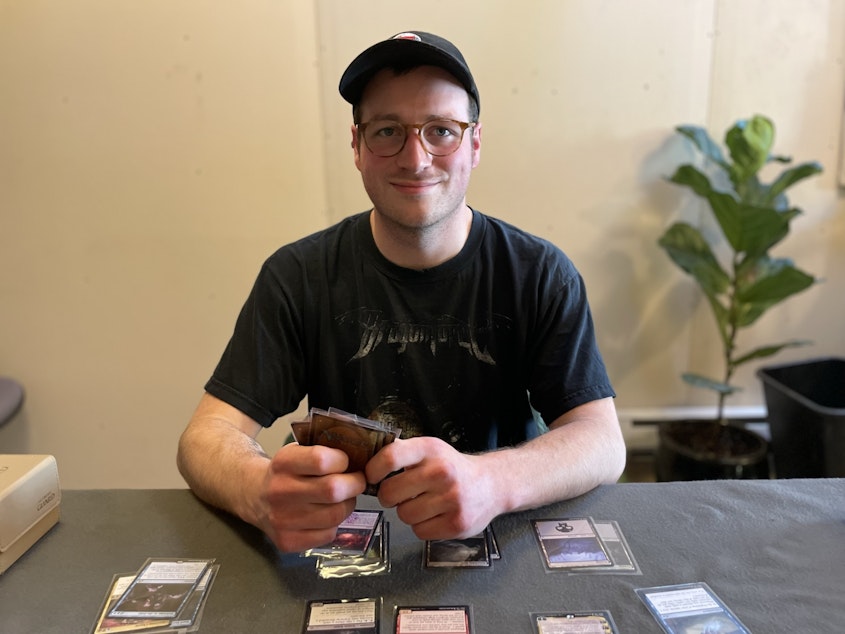
In warehouses and offices in Seattle's Ballard neighborhood, 180 employees grade and box up orders of Magic the Gathering cards. They work in three shifts, including overnight, sending out 2,500 packages a day — enough to fill several UPS trucks.
These are not employees of Seattle-area company Wizards of the Coast, which produces the game. They're part of the massive secondary market for Magic cards, dominated by another local company called Card Kingdom.
And like workers in other industries, they're calling for change.
Most of the employees of Card Kingdom are huge fans of Magic the Gathering. Jeff Dunn is one of them.
“I want to say, like, 2003 was probably when my parents bought me my first Magic set. And they didn’t know what they were getting, it was just in the toy section, and they were like, 'Well this looks cool.' And I’ve been collecting them since. I couldn’t keep my hands off them.”
Wizards of the Coast has published around 20,000 unique Magic cards over the last 30 years. Each one is a tiny painting of a different wizard, monster, or the spells and weapons they use to attack each other. Jeff Dunn pretty much knows them all.
“I’m burdened with useless knowledge," he says. "Or at least, it was useless, until I got hired at Card Kingdom. And then, I was like, 'Oh, this is a skill set I’ve been training my entire life for.'”
Sponsored
Card Kingdom's operation surrounds Ballard's popular Cafe Mox — a gamer pub and store that is owned by the same company (the union effort at Card Kingdom does not include employees at the pub/store).
At Card Kingdom's warehouse, 70 workers at a time sort, grade and package new and used Magic Cards. They send out thousands of packages every day, to destinations all over the world.
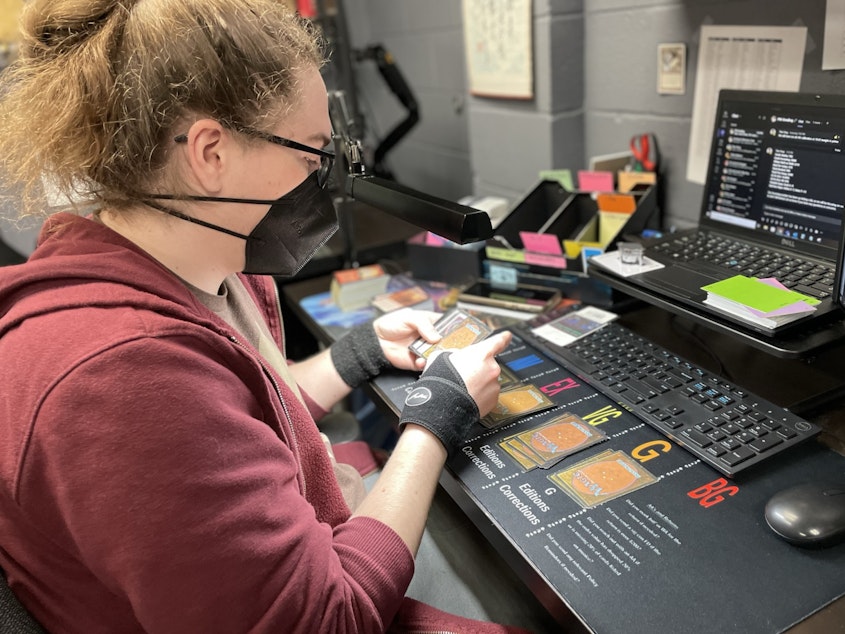
But after the pandemic hit, Dunn says things went downhill.
He says workers weren’t given time off for Covid, so some came to work sick. People who missed work got behind on their rent and struggled to make it up on their limited pay. A lot of people quit.
A growing number of workers, including Jeff Dunn began to consider forming a union.
Sponsored
"We don’t hate Card Kingdom," he says. "We don’t hate our management or anything. But in its current form, it makes it really hard for people to see their future with the company.”
Owners have a different dream
On the other side, the founders of the company are feeling misunderstood. Co-owner John Morris has earned a lot of money from his company. But he says he’s always wanted to share that wealth with his workers.
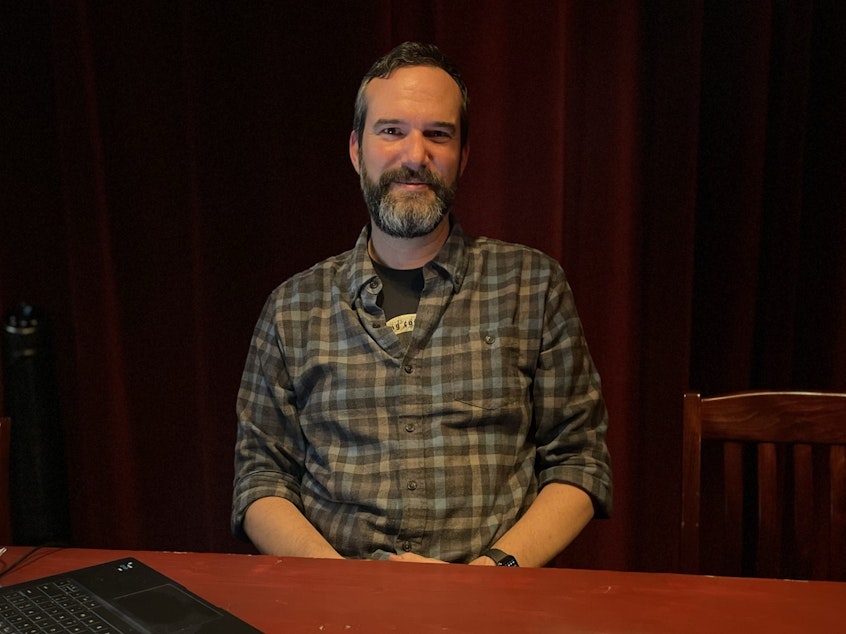
“Ultimately I’m looking at what’s happening in this country, and whatever’s wrong with capitalism seems to be centered on the hoarding of wealth,” he says.
And so, before the pandemic, he and his co-owner set the company on a path that would eventually allow the employees of Card Kingdom to own the company themselves, through what’s known as an Employee Stock Ownership Plan. It gives the current owners a way to move on to something else and it lets employees profit from future growth.
Sponsored
But then the pandemic hit.
And other crises demanded owner John Morris’ attention, like how to manage rising orders, fueled by stimulus money with fewer people.
Suddenly, it wasn’t safe for employees to sit close to each other, passing cards back and forth like they used to.
So Morris and some other technical staff built robots that could put together decks of cards much faster than humans could.
At one point, Morris had to drive his wife to the hospital for cancer treatment, then turned around and headed back to return to work on the robots.
Sponsored
"It was the epitome of dire," he says of that period in time.
“But we did it. We went from a literal prototype, with literal duct tape and extension cords plugged into the ceiling, to building orders on these machines, in a way that kept everyone socially distanced, in under four weeks,” he says.
The company survived, and got some PPP money to bring employees back. But when the employees returned, they discovered a company transformed.
It wasn’t just the robots. A lot of employees actually like the robots.
It’s just that the robots were accompanied by a major staff reorganization that pushed people into different shifts, including a new overnight shift.
When Wizards of othe Coast publishes a new set of Magic cards, which happens several times a year, employees are required to work mandatory overtime.
And inflation had made their wages feel much lower than they were before.
Amid this worker dissatisfaction, owner John Morris is trying to revive enthusiasm for the plan to transfer ownership of the company to its employees.
But he says that plan might not be possible if there’s a union.
He says if workers can hold out, they could start to see the financial benefits of ownership in as little as five years.
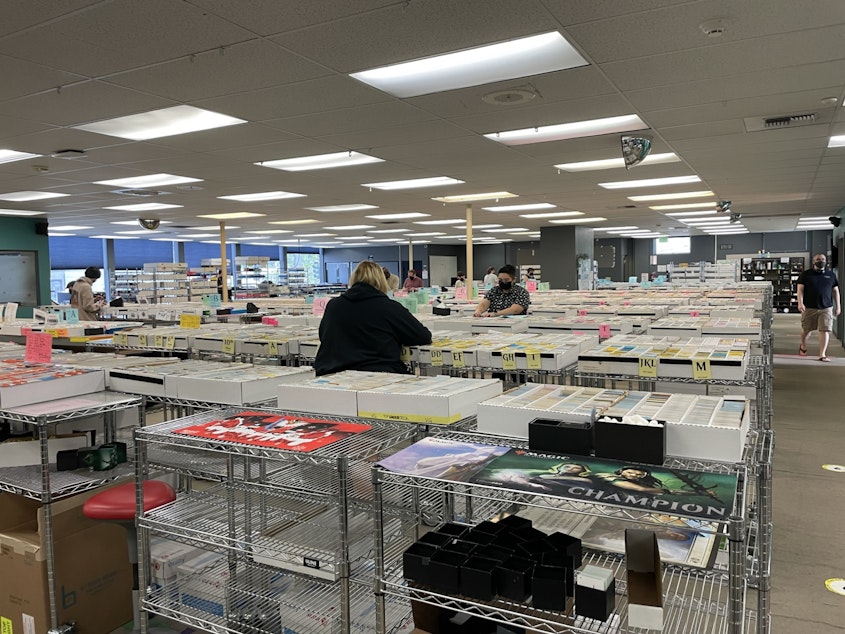
Employee Jeff Dunn says workers can’t wait five years. They’re just trying to figure out a way to pay the next month’s rent. He says the owners are out of touch with what their company's employees are facing.
“There’s like a specific kind of nerd that applies at Card Kingdom and excels in this environment, surrounded by these pretty dorky people in this pretty dorky place. And it just really hurts me to see people that love this product and they love the work that they’re doing just get pushed out of the industry because they’re like 'Well, I just can’t make it work for me.'”
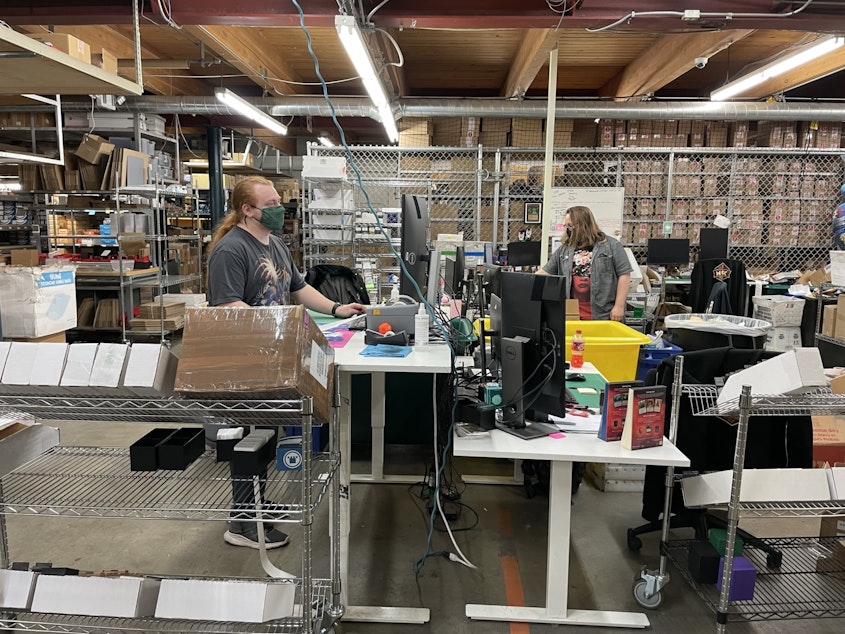
Owner John Morris says he's trying to listen, and learn, from these complaints.
"Covid lays a business bare," he says. "And I think right now, we’re just coming out of it, trying to reconcile 'What just happened?' and 'Who are we?'"
A unionization vote for Card Kingdom employees will happen in the next month or two.
The union UFCW 3000 is currently negotiating on workers' behalf with the National Labor Relations Board on an election date.




